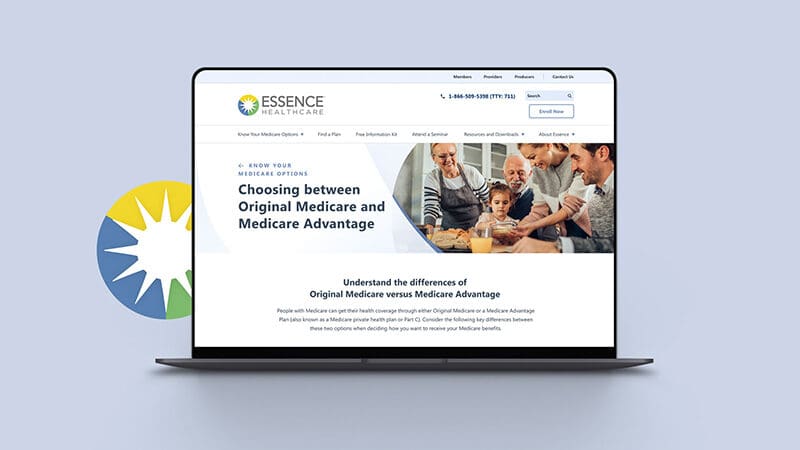Our SEO Services
SEO Strategy
At the core of Timmermann Group's approach is our comprehensive SEO strategy. We analyze your website and your competitors to pinpoint both the strengths and gaps in your current SEO landscape. By implementing targeted changes, we not only refine what's already working but also introduce improvements to elevate your search engine rankings.
Keyword Research
The foundation of a robust SEO plan lies in keyword research. At Timmermann Group, we handpick keywords and phrases tailored to enhance your brand visibility. Our strategy isn’t “just” about selecting words—it's about better connecting with your target audience the moment they search for your business. By focusing on realistic, first-page rankings on Google and other search engines, we set the stage for your digital success.
On-Page Optimization
Your website is a mosaic of various elements—from text to images. We believe in crafting content that not only engages your visitors meaningfully but also mirrors your brand's essence. In our on-page optimization process, every component is refined to resonate with search engines' quest for relevance. This holistic approach to on-page optimization is a key driver in boosting your website's search engine rankings.
Content Development
Content is the heartbeat of your website. At Timmermann Group, we craft content that strikes the perfect balance between keyword-rich SEO copy and engaging storytelling. Whether it's refreshing existing pages, blogging, or content marketing, our focus is on blending SEO requirements with compelling narratives to drive traffic to your site.
Off-Page Optimization
Beyond your website, our off-page optimization strategies focus on building your site’s authority. With 20+ years of experience, we know how to navigate the complex world of link acquisition, encouraging reputable websites to link back to yours. Each external link acts as an endorsement, signaling to search engines that your site is a credible source of information. This not only boosts your SEO but also elevates your brand's perception among your audience.
SEO Reporting
Success in SEO is an ongoing journey, and at Timmermann Group, we ensure you're equipped with the insights to navigate it. Our comprehensive SEO reporting keeps you informed about your website's performance, from keyword rankings to organic traffic and lead generation. More than just data, our reports provide actionable insights for continual improvement and growth in your digital presence.
Our Expertise
With over twenty years of experience under our belt, the Timmermann Group team are true veterans in the ever-evolving world of Search Engine Optimization. We’ve weathered the shifts, adapted to the changes, and honed our craft to deliver exceptional results for our clients time and time again.
But we’re more than just practitioners—we’re your strategic partners. By taking the time to truly understand your objectives, audience, and competition, we’re able to create a customized plan that unlocks your brand’s true potential, driving both organic traffic and long-term growth.
Partner with Timmermann Group and experience the power of over two decades of SEO excellence.
Our Approach
Timmermann Group takes an agile approach to SEO that helps you rise above the noise and forge lasting connections with your target audience. Our experts start by identifying the low-hanging fruit, the content that can propel you to the top of search engine results pages (SERPs) in the near term.
But we don’t stop there. Alongside these immediate optimizations, we also strategize for the long game, developing new content that will continue to rank higher over time. By encompassing your entire body of content—present and future—we help you capitalize on existing opportunities while laying the groundwork for lasting, scalable success.
We don’t chase short-term rankings; instead, we engineer a self-sustaining cycle of discoverability, ensuring your brand remains top-of-mind and continues to expand its digital footprint.
Our Process
True SEO success is measured not just by rankings but by the tangible revenue it generates for your business. That’s why we’ve developed our Ranking to Revenue SEO process—a data-driven, best-practices-guided approach that transforms your online visibility into measurable growth.
It all starts with a Comprehensive Audit. Our team of SEO experts will conduct a deep dive into the current state of your website, analyzing every aspect of your online presence to identify areas of strength and untapped opportunities for improvement.
Armed with these insights, we then move into the Strategy Development phase. Here, we leverage our expertise and the data uncovered in the audit to craft a customized, results-driven SEO strategy tailored specifically to your business goals and target audience.
But the real magic happens in the Execution phase, where we bring our strategy to life. Our SEO specialists will implement a wide range of tactics, from on-page optimizations and technical improvements to content creation and off-site authority building. We leave no stone unturned, ensuring every element of your online presence helps maximize your visibility and drive meaningful results.
Partnering with Timmermann Group was a game-changer for us. Their expertise in SEO, PPC, and website optimization has not only improved our online visibility but has also significantly increased our customer conversions. The team's dedication and tailored strategies have been instrumental in our digital success, setting us apart in a highly competitive market. We're grateful for their ongoing support and innovative approaches.
-Clint Solliday, Jack Lehr Heating, Cooling & ElectricWe began working with Timmermann Group when our company merged with another who had been using them for years. I was immediately impressed with Rob and his team of experts. They fully understood our complex industry, and were quickly able to develop robust tools for our SEO, social media, website creation, creative strategy and execution. We tasked them with developing a large global website, in multiple languages, in half the time it usually takes to develop such a large-scale website. The team delivered in spades. Our new global website is seeing dramatically increased traffic numbers, up to 3X more than before we utilized their services. In addition, our social media presence has seen a tremendous boost, regularly seeing 3-5X the number of followers as before. We are realizing actual revenue increases due to their mastery of social media and SEO strategy. I could not be more impressed, and would whole-heartedly recommend them to anyone, in any industry, seeking to grow their revenue through digital avenues.
-Benjamin Bowlware , MaxcessTimmermann Group has helped The Simon Law Firm climb toward our goals and has a strategic plan and recommendations each step of the way. The knowledge that each of the team members has is a great asset to our firm.
-Angela Louis, Simon Law FirmAre We A Fit?
At Timmermann Group, we align with businesses who…
- Value Continuous EvolutionLike us, you’re Always Growing and seeking the next level.
- Appreciate Agile StrategiesYou need a partner who’s Strategic Yet Nimble. We pivot with purpose.
- Seek Genuine PartnershipsWith our Partner-First Mindset, we prioritize your success above all.
- Demand Prompt ActionYou act swiftly, and with our On the Ready approach, so do we.
- Focus on Solutions, Not ProblemsWe’re Solution Oriented, turning challenges into opportunities.
- Crave Authenticity (and a bit of fun)Be real, be Authentic A.F. (And Fun). We value genuine connections.
View Our Success Stories
Why Partner with Us?
Our dedication to delivering bespoke SEO solutions has earned us accolades and a reputation as a leading digital marketing firm. We pride ourselves on being a service provider and a strategic partner invested in your success.
Frequently Asked Questions
Why are organic search rankings important?
Organic search rankings are important because they’re the best way to capture prospective leads, clients, or customers who may not be familiar with your business. Usually, when they’re searching, they’re ready to make a purchasing decision. If your business is showing up on the first page of their Google search, you’re more likely to get that business.
How do I know if there is an opportunity for SEO to be profitable for my business?
One way we like to calculate SEO profitability is by selecting an applicable keyword for your business that someone ready to make a purchase is likely to use and then examining how many monthly searches that term has.
For example, if you run an HVAC repair business in St. Louis, you’d look at the monthly searches for a phrase like, “air conditioner repair St. Louis.” A prospective agency partner can get this data for you, or you could use an online tool. Once you know the average number of searches for the term, multiply by 12 to get the yearly search data, and multiply again by your average sale amount. This should give an idea of the sales you could pull in if your business ranks in one of the top spots on Google.
How important is a website to achieving better rankings?
Your website is the most important aspect of SEO – it’s what the search engines are looking at. Almost every website has some SEO work that could be done, but you’ll be able to reach greater heights with a website specifically designed for SEO success.
Search engine algorithms evaluate your website as a whole, beyond the on- or off-page SEO content efforts. These algorithms examine sites for proper structural hierarchies, secure site and hosting, responsive design, and more. True SEO success requires roots in a strategic website build.
What does an SEO agency do?
A company specializing in SEO supports companies enhance their digital presence and effectiveness by providing a range of services, including strategizing, conducting keyword research, analyzing competitors, building links, and optimizing on- and off-page content. These efforts aim to achieve improved rankings for relevant search terms, drive more traffic to the website, and ultimately increase conversions from organic search results.
How much do SEO agencies charge?
SEO service prices for agencies across the U.S. can vary significantly, with an average monthly cost ranging from $3,000 to $15,000. The scale and scope of provided services from your full-service agency will determine your specific pricing.
Are SEO agencies worth it?
Investing in an SEO agency is beneficial for commercial websites or those in niche industries, improving online presence and overall success. When you have an experienced, full-service SEO agency, you can expect to receive:
- Expertise and Experience | An SEO-specific agency brings a wealth of knowledge and experience, staying up-to-date with the latest trends, algorithm changes, and best practices, to develop effective strategies tailored to your business goals.
- Time and Resource Savings | Managing SEO internally is often time-consuming and resource-intensive, making it especially difficult for businesses with limited staff or minimal digital marketing expertise. Outsourcing SEO to an agency helps companies free up valuable time to allow staff to focus on other core aspects of the business.
- Targeted Approach | SEO agencies conduct in-depth research to understand your target audience, industry needs, and competitive environment. This information allows the creation of customized strategies that resonate with your audience and drive relevant traffic to your website.
- Measurable Results | Reputable SEO agencies will provide transparent reporting and measurable results, allowing businesses to track the impact of your investment. Whether it’s increased organic traffic, higher search engine rankings, or improved conversion rates, companies get tangible ROI evidence.
- Long-Term Value | Paid advertising stops generating results once the money stops being spent, but SEO offers long-term value and sustainability even after the initial investment. Optimizing the website and content for search engines continues attracting organic traffic and leads over time to deliver ongoing ROI.
- Adaptability and Flexibility | The digital world is constantly evolving, including regularly changing search engine algorithms and user behaviors. SEO agencies are equipped to handle these changes quickly, ensuring the implemented strategies remain effective and up-to-date.
What sets Timmermann Group apart from other SEO service providers?
One key distinguishing factor of the Timmermann Group in terms of SEO services is our use of top-notch strategies, ethical methods, and a dedication to achieving lasting results. Our offerings include strategic research, thorough audits, and customized SEO plans for identifying optimal keywords, setting us apart from other providers who offer limited or generic solutions.
Does Timmermann Group provide e-commerce-specific SEO solutions?
Yes! We offer SEO solutions specifically designed for e-commerce businesses that help improve online visibility and drive sales. Our strategies are customized to meet the unique needs of each online store, ensuring maximum impact on search engine rankings and overall rankings.















